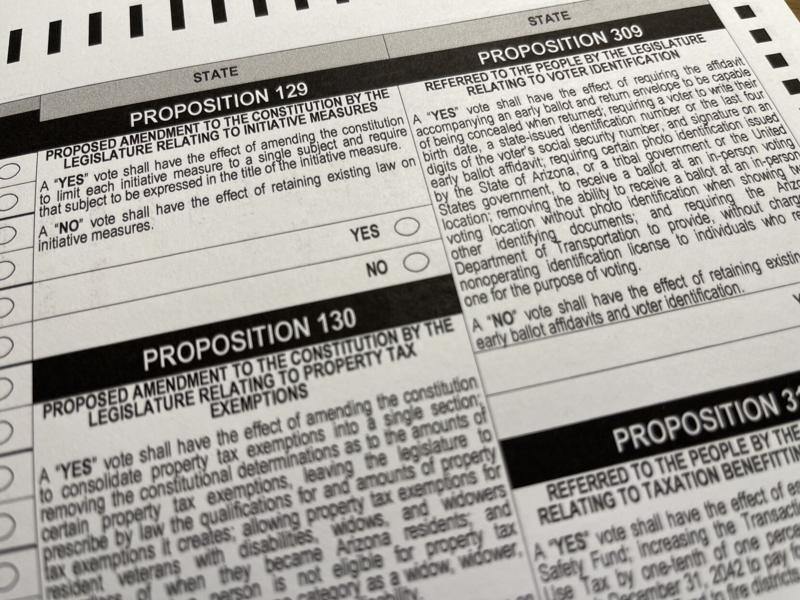(The Center Square) – There is a ballot proposition that could change the way citizen-led ballot initiatives operate in Arizona. The ability for voters to bring potential laws to the ballot has been enshrined in the Arizona constitution for decades and many laws have been enacted this way.
“In just the past three election cycles, Arizonans have voted to raise the minimum wage, increase campaign finance transparency, allow Dreamers in-state tuition, and protect public education funding,” reads a statement from the Grand Canyon chapter of the Sierra Club.
However, year after year, groups have initiated lawsuits against the constitutionality of certain citizen-led initiatives after they’ve been voted into law. This is because there cannot be any litigation when it comes to ballot propositions unless it is to determine the validity of the required signatures.
Prop. 136 would not only allow, but require the Arizona Supreme Court to determine if a ballot proposition is constitutional before it is able to be printed on the ballot.
“Every election cycle, out-of-state special interests spend millions trying to put their bad ideas onto our ballot,” reads an Oct. 8 statement from the Arizona Free Enterprise Club. “Because these groups do not understand our laws or our constitution, the measures they peddle are poorly drafted and are often unworkable or illegal. In some instances, they do know better but don’t seem to care that their proposed measure is unconstitutional.”
The Arizona Free Enterprise Club said that they believe this proposition is important as it would apply increased scrutiny to proposed laws, pointing out that the legislature undergoes such a process. At the legislature, bills must be assigned to a committee, receive a public hearing, receive a majority vote, pass a review on the constitutionality of the bill and then it must be signed by the Governor.
“This long and cumbersome process at the legislature serves to weed out not only unpopular ideas that cannot get the votes, but also puts many eyes on the language to make sure if it does have the support, it is constitutional,” reads the statement. “But these checks simply do not exist in the ballot initiative process.”
“However, numerous groups have spoken out against Prop. 136, noting that it would create hurdles for voters who don’t agree with the laws and ideas of the legislators,” reads a statement from Pinny Sheoran, president of the League of Women Voters. “This proposition, if passed, would increase the barriers faced by citizen-led initiatives. And there would be a financial burden as well; litigation costs money, and taxpayers often foot the bill. This proposition is a blatant attempt to limit the power of voters to enact laws and constitutional amendments. It is in the voter’s best interest to vote no on the proposition.”
Others against the proposition state that citizen-led initiatives have been influential in Arizona’s legislative history.
“The citizen initiative process has been in place since Arizona’s founding,” reads a statement from Scott Greenwood, executive director of the ACLU of Arizona. “The first initiative granted women the right to vote, passing by a more than 2 to 1 margin. Since then, Arizonans from all sides of the political spectrum have utilized the initiative process to have a direct voice in the laws that govern our state. The citizen initiative process has led to raising the minimum wage, legalizing marijuana, and demanding special interests disclose their donors.”
Nevertheless, Arizona voters will be able to utilize their constitutional right to vote in citizen-led initiative Prop. 136.






